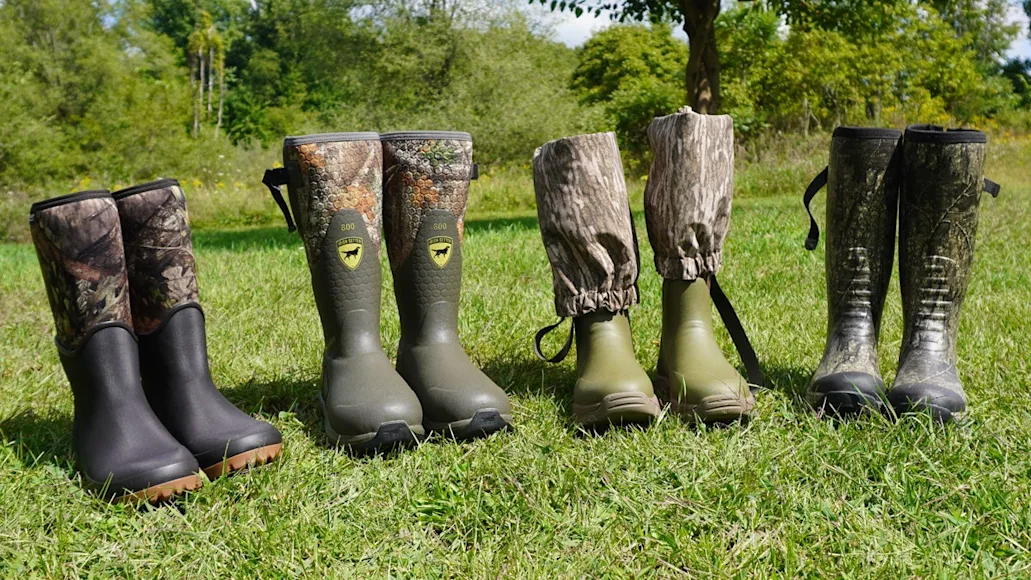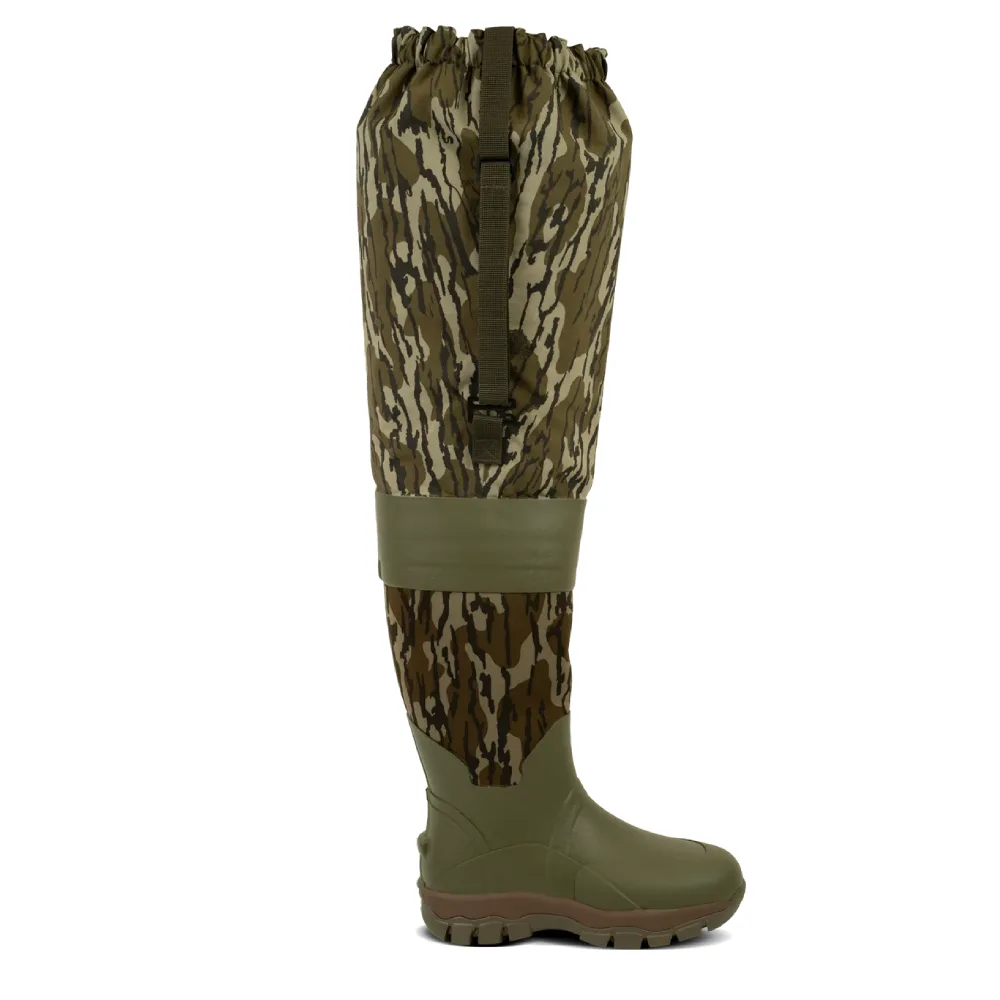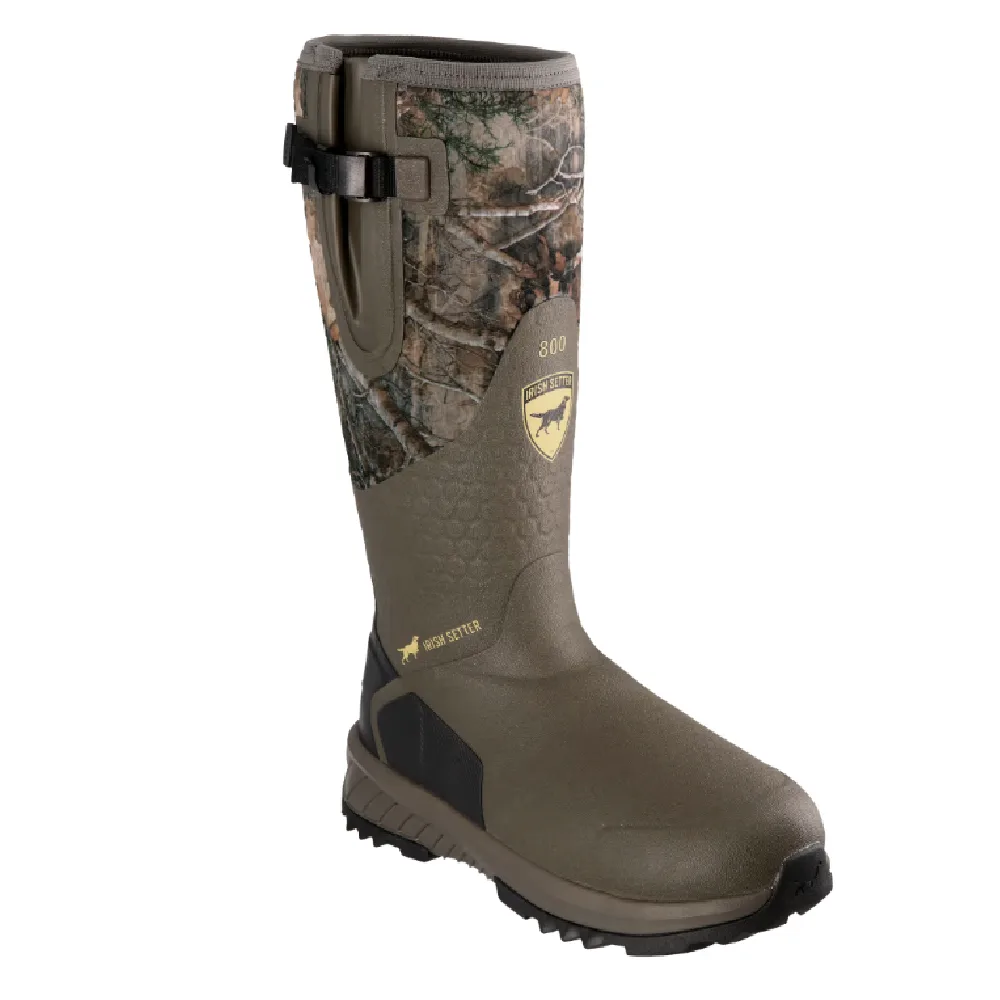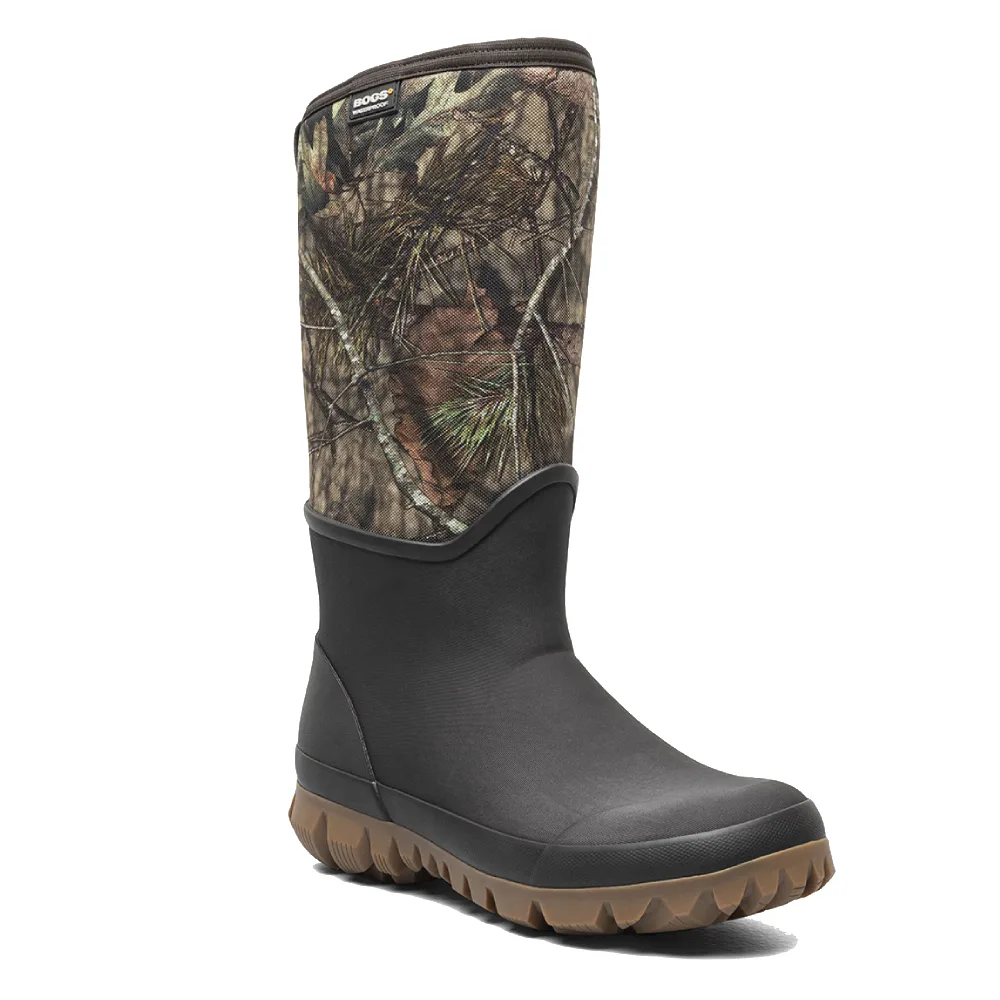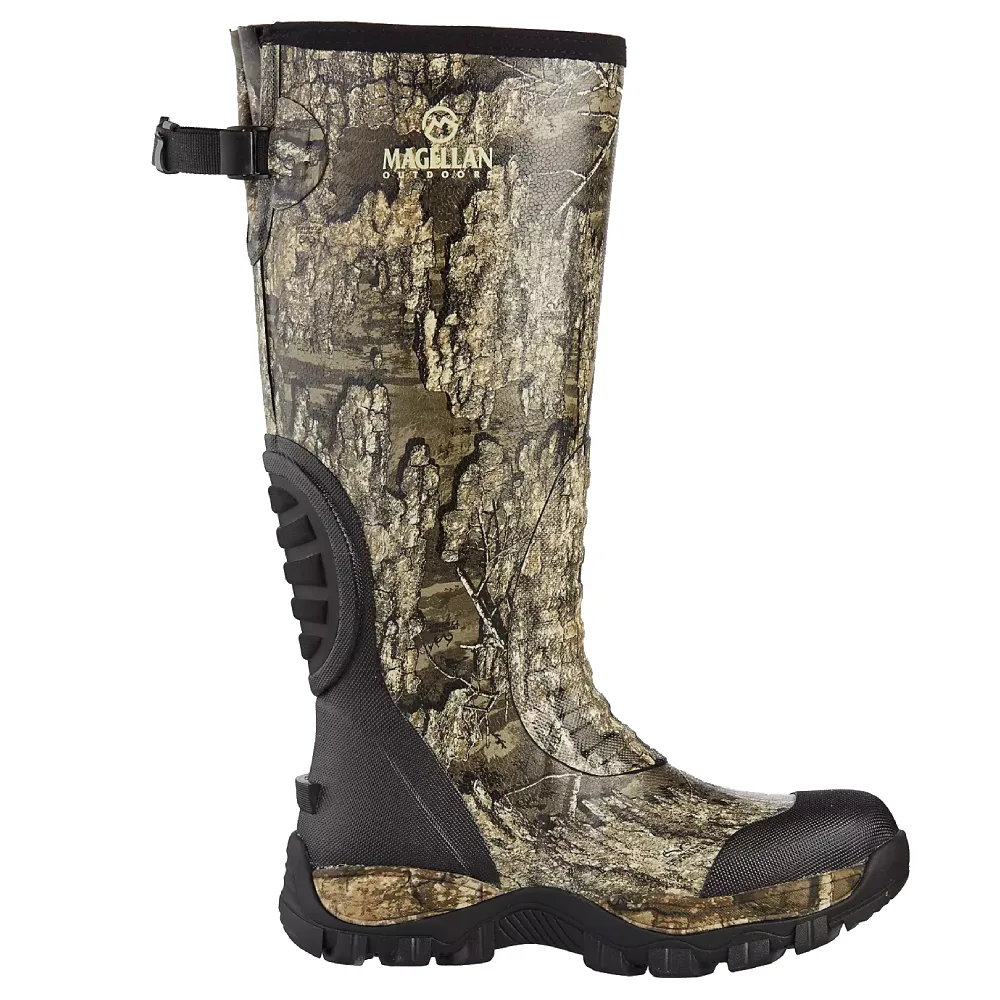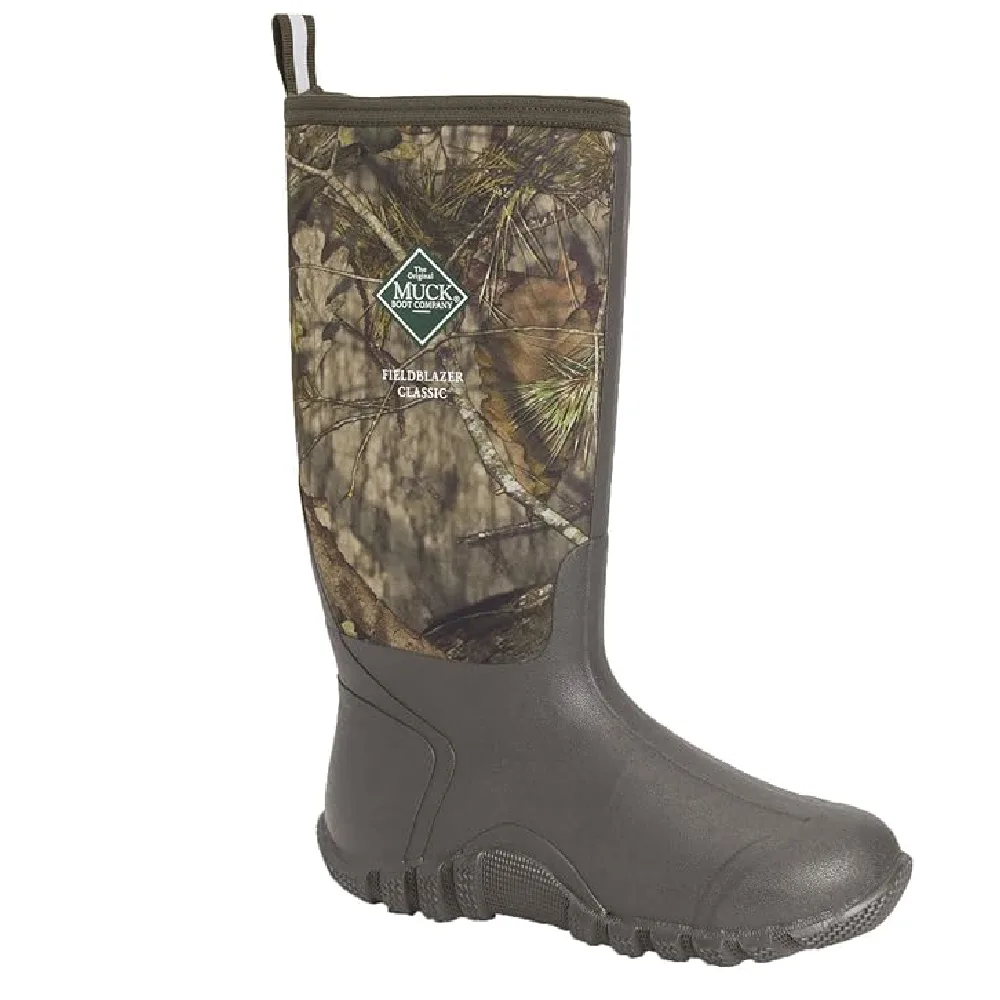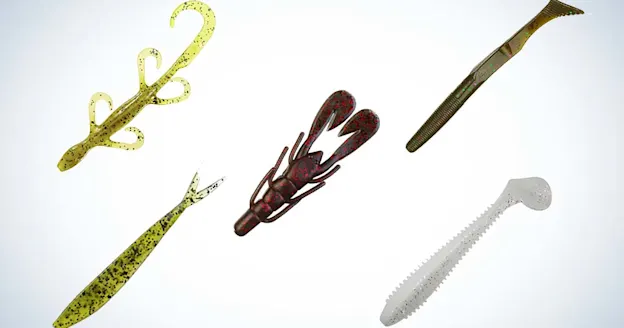We may earn revenue from the products available on this page and participate in affiliate programs. Learn more ›
Muck boots are a necessity for anyone who spends lots of time hunting, fishing, or working in swamps, creeks, muddy farm fields, and other wet conditions. Keeping your feet dry and warm will help you stay in the field longer, ensuring much better odds of success. Modern rubber hunting boots are expertly designed with the type of waterproofing and tread patterns that our outdoor-loving grandfathers could only have dreamed about.
Stores have become a bit saturated with offerings specifically for mud in recent years (no pun intended) as outdoorsmen and women demand better footwear. Today there are specialty boots for fishing, hunting, working, and everything in between. With that in mind, we slipped on a few of the most popular pairs and got to trudging through the mud and puddles to find the best muck boots being made today.
Best Overall: Chêne Slough
Best Insulated: Irish Setter MudTrek
Most Versatile: Bogs Arcata Tall
Best Budget: Magellan Outdoors Swamp King
Best For Farming: Muck Boots Fieldblazer
Best Overall: Chêne Slough
Specs
Material: 3mm neoprene
Sizes: 6–14
Height: 9 to 28 inches (Adjustable)
Insulation: None
Pros
Great traction
Extra protection from deep water
Extremely comfortable
Cons
Expensive
After testing these boots, I now fully understand why our associate editor, Ryan Chelius, is always raving about the Chêne brand. The quality of construction and durability of the Chêne Slough is off the charts. These are some serious boots for serious hunters. They breathe better than any other boot of this type that I’ve ever worn. The slough boot is a great choice for anyone who’s tired of having sweaty feet all the time. I found the rugged outsoles provided excellent traction in slimy and slick mud.

I think the biggest hurdle for most hunters is going to be the $300 price tag. That’s a lot of money for specialized, situational footwear. But Chêne’s slough boots shine in their versatility like no other boot of this style that I’ve ever worn. That’s mostly because the company built a standard 16-inch rubber and neoprene upper that doesn’t stop at the top of the boot. There’s an additional 12 inches of wader material added to the end. When fully extended, the tops stand about 28 inches high, which was just past my knees. That allowed me to traverse standing water that’s too deep for standard muck boots.

When you don’t need that extra protection from deep water, the wader portion rolls down out of the way. It’s a simple design, but a highly effective one that makes for nearly endless possibilities. Additionally, the breathability and reduced weight per boot make these a dynamite alternative to a pair of chest waders. They’re especially great for those early season teal hunts when temperatures are high, and a traditional pair of duck hunting waders is sweltering.
Best Insulated: Irish Setter MudTrek
Specs
Material: Vulcanized rubber
Sizes: 4–15
Height: 17 inches
Insulation: 800 grams of PrimaLoft
Pros
Toasty and warm
Comfortable
Scent control is a bonus
Cons
Longevity may not be the greatest
For hunters in colder climates, it’s often a delicate balancing act between waterproof qualities and warmth. Fortunately, there’s no need to compromise on keeping your feet warm with the Irish Setter Mud Trek boots. The popular boot brand makes a few different variants, including one with 800 grams of Prima Loft insulation, and one with 1,200 grams. I tested the 800-gram version and found the heat radiates nicely and stays trapped inside even when I was only wearing a single pair of socks. I waded around in the coolest stream I could find with these and could still feel the warmth of the insulation.
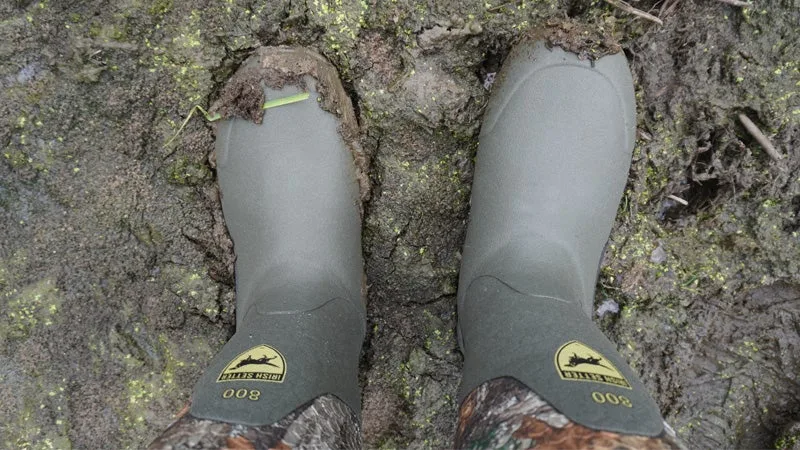
I like these rubber boots best for longer hikes and prolonged comfort while sitting in a chilly tree stand or ground blind. They’re also just surprisingly comfortable to walk in over a variety of terrain, so they’re a solid option for anyone who has a long trek in swampy terrain to their favorite spot.
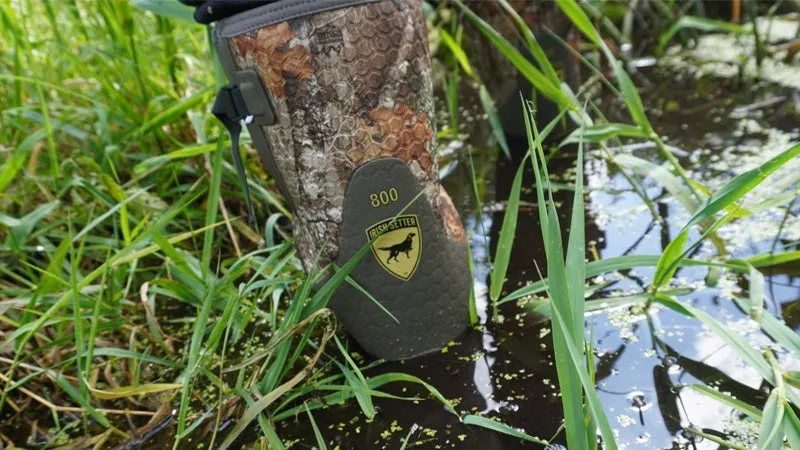
If there’s a downside to these cold weather hunting boots, it’s that the longevity is questionable, specifically in the Achilles area of the heel. The rubber here is thick, and I had no issues with it while testing. But I could see also see from the design it might get stressed with heavy use
Most Versatile: Bogs Arcata Tall
Specs
Material: Neoprene
Sizes: 7-13
Height: 15 inches
Insulation: 5mm NeoTech
Pros
Amazingly light
Good tread pattern
Very natural fit
Cons
Not great on ice
I’ve been wearing this style of boot my entire hunting career, but the Bogs Arcata genuinely surprised me. These boots have the most natural fit I’ve ever encountered with a muck boot. And they’re incredibly lightweight and breathable. If you’ve ever wanted a rubber boot that feels like a true natural extension of your feet, this is the one to consider. The design makes them incredibly comfortable for hiking, and they’re a good fit for anyone who has a longer walk back to their blind or tree stand.

Bogs put some harder but excellent lugs on these boots. They impart a nice natural feel that protects your feet while simultaneously providing some nice tactile feedback—better than any of the other boots I tested. It’s great for muddy waters where you can’t quite see the bottom.
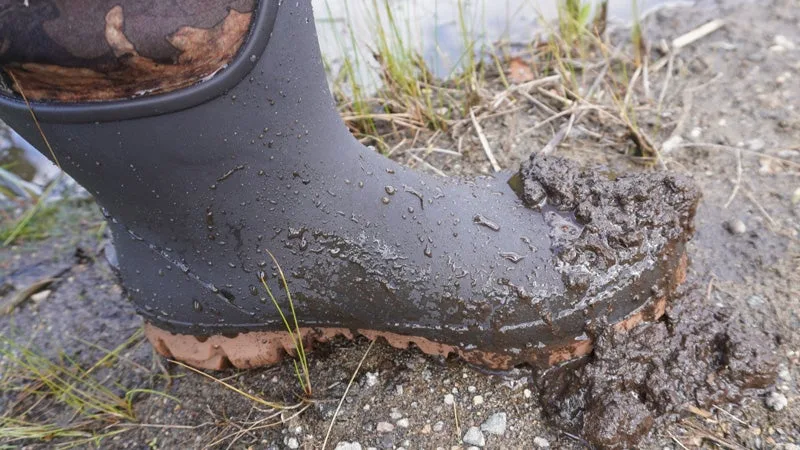
I feel like these boots will function best for warmer weather because the treads are hard, and I don’t feel they’ll function well for some activities like ice fishing. The breathability also means you can feel the coolness of the water while wading. However, for soft ground and slimy mud, these boots effectively worked like all-terrain mud tires for my feet. I’ll be utilizing these often for my summer trail camera checks in the future.
Best Budget: Magellan Outdoors Swamp King
Specs
Material: Rubber
Sizes: 7–14
Height: 17 inches
Insulation: None
Pros
Affordable
Solid comfort
Great for warm weather
Cons
Sizing can be tricky
Some minor durability issues
Magellan is an Academy Sports owned and exclusive brand that’s extremely affordable. The Swamp King boots go for about $90 normally. However, Academy frequently puts these on sale, sometimes for as low as $50. The comfort is solid for the price point—I wish my first pair of waterproof boots had been this comfortable. The height is also decent compared to the more expensive options on this list.
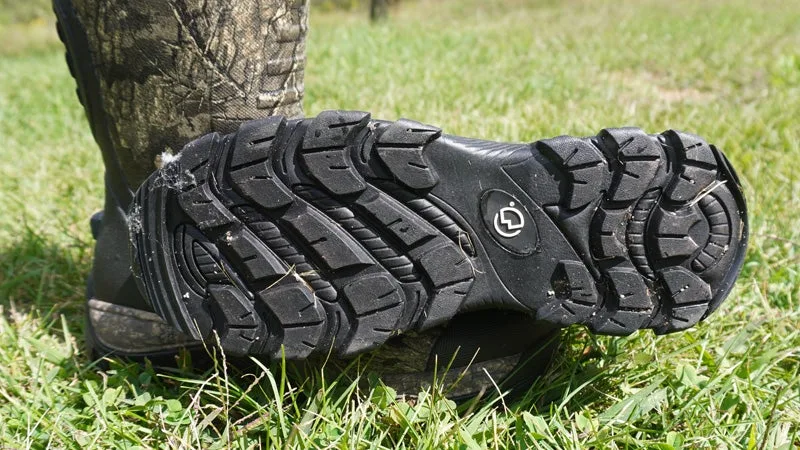
I’ve quickly become a fan of the Magellan brand just because it’s solid gear that will get the job done without burning a hole in your wallet. These boots would be a good choice for a new hunter because they’re versatile for hunting deer, turkey, and waterfowl rather seamlessly. You could also wear them as fishing boots for even more added value.
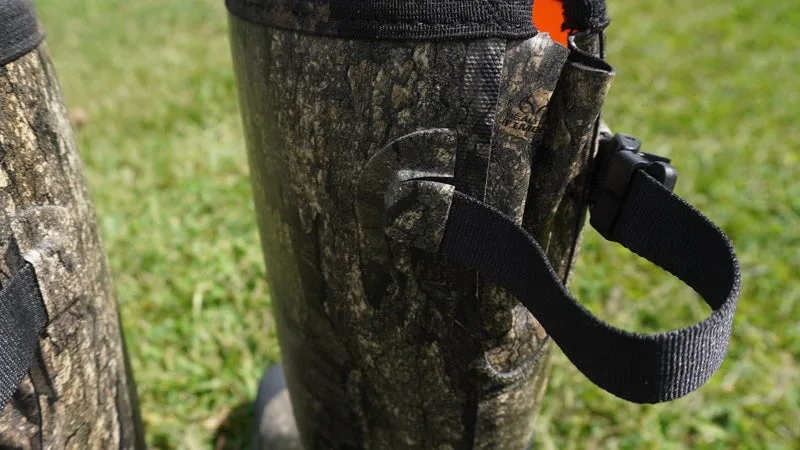
Note: There are some sizing quirks with these boots. I normally wear size 11 and tested size 12, but now I’m thinking 13 might have been a better fit. Half sizes would have been nice here. I also tore the rubber holding the cinching strap on the upper of one of the boots. I’ll cut Magellan a little slack here as that was some user error on my part not realizing it was a weak point. But I could see others accidentally tearing this if not careful. It didn’t affect the fit as the boots were still snug without it. Once again, you can chalk that up to the sizing being off slightly.
Best For Farming: Muck Boots Fieldblazer
Specs
Material: Neoprene
Sizes: 5-15
Height: 16 inches
Insulation: Fleece (select models)
Pros
Simple design
Blaze orange lining can be utilized for safety
Outsole is easy to clean
Cons
Tends to run a little large
The Muck Boots Fieldblazers transition quite seamlessly from the barnyard to the woods when you need them. They’re the ideal boots for working a food plot without leaving too much sign of a human presence behind. The footbed features odor and moisture control that will further reduce that impact on a sensitive hunting area. The tread pattern of the sole is simple, which makes it rather efficient to clean, too. This makes it an ideal work boot.
Muck Boots also adds extra reinforcement to high stress areas like the heel, toes, and Achilles area that makes them prime for any sort of messy work where rubber boots are a necessity. It’s a bonus that these boots are offered in four different camo patterns to match any hunter’s clothing. Another bonus is in the blaze orange lining of the boots, which you can flare out as an additional bit of safety color during firearms seasons. The fleece-lined version will keep your feet toasty warm on colder days.
How We Tested Muck Boots
I personally tested all of the boots in this article. I’m fortunate—or maybe unfortunate depending on how you look at it—to live in an especially soggy part of southwest Michigan. We’ve got mud all year-round here, even during the driest of summers. Thus, I’ve been wearing rubber hunting boots ever since I started more than 24 years ago. It wasn’t hard for me to find areas to test these boots for protection, waterproofing, and comfort in real-world conditions.
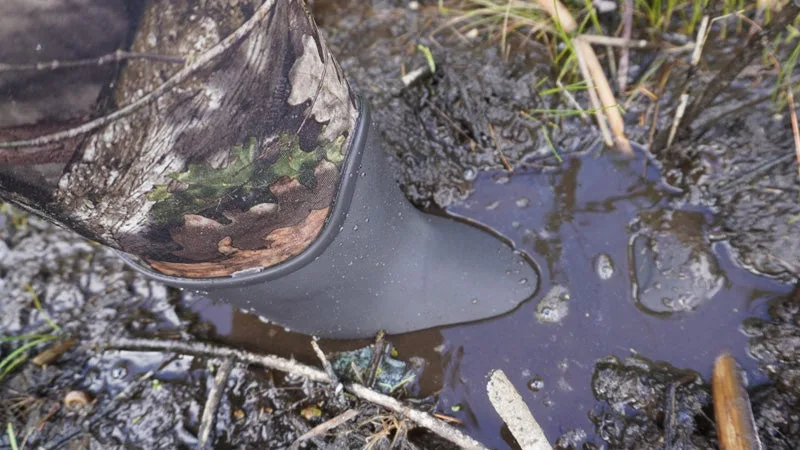
I made sure to wade with each of the boots to test the waterproof qualities. (Spoiler, all passed the test.) I also looked for extremely slippery mud to test the tread patterns. Lastly, in addition to real-world testing, I considered the following factors for each boot:
Materials: Is the boot constructed of tough materials? How fast do they dry?
Fit and Comfort: How well did the boots conform to my feet? Are they comfortable enough to hike in for long distances?
Cost: Does the construction and durability of the boots match the price point?
What To Look For in Muck Boots
It’s best to think about what you need the boots for when deciding on a pair. It doesn’t make sense to buy a heavily insulated pair that will make your feet sweat if you’ll be on the move most of the day. Consequently, an uninsulated pair isn’t the best choice for keeping your toes toasty during a long day in the tree stand. If you are buying work boots, consider getting composite or steel toe for an additional layer of protection.
Tread
Pay close attention to the soles of the boots. For most mud conditions you’ll want something with a decent amount of tread that won’t slip and slide all over the place. Heavier lugs are great if you spend a ton of time in swampy areas. But they can become a detriment in a scenario where you just need to protect your feet from grime, like a barnyard of a pig farm.
Sizing
In my experience, most muck boots tend to be whole sizes. Manufacturers rarely go to the trouble of making rubber boots in half sizes. Because of this, people with odd-sized feet are left with a conundrum. Do you size up or down? Well, again, in my experience it is best to size up. You want a little bit of wiggle room for your toes. And the problem of over-sized boots can always be corrected slightly with thicker socks. However, boots that are too small to start are just going to hurt your feet from the get-go.
Most manufacturers will mention if their offerings are true to size or not. Otherwise, it’s usually a safe bet to go up one size.
Insulation
As I’ve already mentioned, my area of Michigan seems to be perpetually wet. But uninsulated rubber muck boots are simply not an option once the temperatures drop. Fortunately, many boot makers are getting quite skilled at insulating this type of boot, so I no longer need to choose between keeping my feet dry and warmth.
Primaloft and Thinsulate are two of the most popular forms of insulation for rubber muck boots. Having tested both, I’ve found them to both be very effective for keeping feet warm and toasty. Most manufacturers give a temperature rating for the differing amounts of insulation. If you plan to hunt when there’s a lot of ice or snow, consider getting boots with at least 1,000 grams of insulation.
FAQs
Q: How long do muck boots last?
It really depends on the boot and how much you use them. Muck boots are just like any other form of footwear in that they eventually wear down. I’ve had pairs used infrequently to moderately that lasted for years. Boots that are used frequently in rough terrain in areas with sharp rocks or sticks may get punctured and start leaking faster than those used in straight up mud.
Q: What is XF in muck boots?
The “XF” usually refers to an extended fit boot. This simply means the boot are extremely tall, covering not just the ankle but also parts of the calf. These taller boots are great for standing water or thicker deeper mud. This style of boot allows you to tuck your pant leg inside which keeps it dry and helps you stay warmer in the woods.
Q: Will muck boots stop a snake bite?
It varies from boot to boot, but most are not designed to be snake proof. While many boots are constructed of thick rubber, that doesn’t mean a fang can’t get through. It will depend on the size of the snake, too. An especially thick pair of boots might be able to stop a smaller snake. However, we recommend not staking your life on it. There are snake boots specifically designed for snakebite prevention. These boots are often more expensive, but it is worth it in snake country.
Final Thoughts
No one likes having wet soggy feet and soaked socks. That’s why the best muck boots are such a necessity for so many forms of hunting. Because unless you’re in the desert, you’re likely going to encounter mud and standing water of some kind. My favorites overall are the Chêne Slough boots, but I plan to keep all the boots I tested because there’s specific case use scenarios for all my favorite outdoor activities.
Why Trust Us
For more than 125 years, Field & Stream has been providing readers with honest and authentic coverage of outdoor gear. Our writers and editors eat, sleep, and breathe the outdoors, and that passion comes through in our product reviews. You can count on F&S to keep you up to date on the best new gear. And when we write about a product—whether it’s a bass lure or a backpack—we cover the good and the bad, so you know exactly what to expect before you decide to make a purchase.

